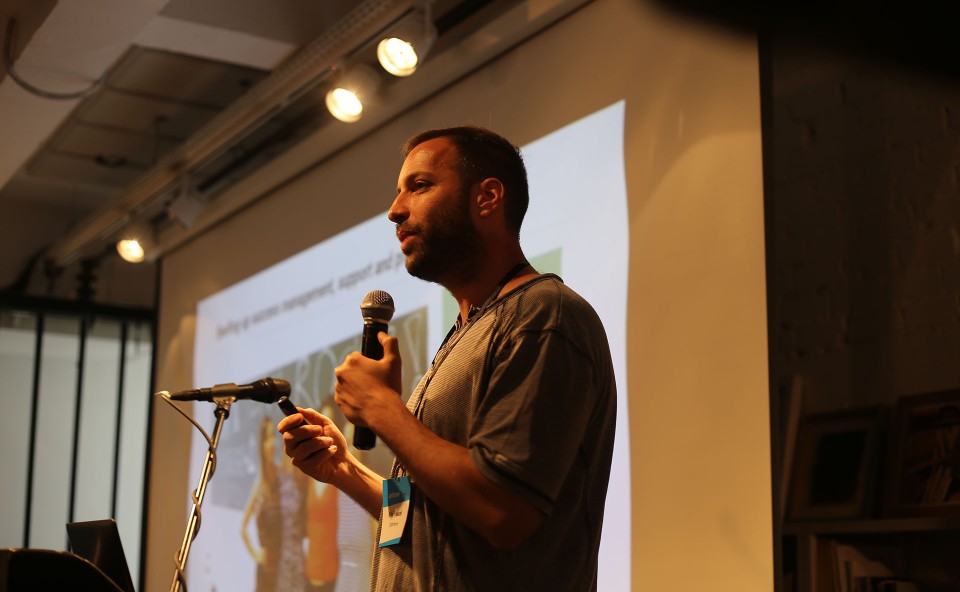As a provider of player modeling services for dozens of social casino brands, Optimove has access to massive amounts of player data that reveals plenty of interesting information and patterns. As seen in this interview with Pini Yakuel and the video below of his speech at Casual Connect Tel Aviv, we’ll dive into the data to see what trends are occurring with players and what possible implications these changes may have on the industry. “Of all of the people who are going to convert (into paying players), 7-15% will do it on their first day. . . It is always faster on mobile so that is something to remember”, Pini advised. Pini also presented their findings, primarily around differences in player behavior between web and mobile platforms, as well as data regarding the actual growth rate of mobile in this space.
main
Contributions
Real-time Personalized Player Marketing
Written by Pini Yakuel, CEO of Optimove
One of the holy grails of personalization is the ability to implement real-time, data-driven player marketing. In other words, social gaming publishers that can deliver highly-relevant messages to individual players at the exact moment of greatest relevance will thrill those players, engender more loyalty, and gain an important edge in this competitive space.
ContributionsOnlinePR & Marketing
How Social Gaming Operators Can Improve Every Customer Marketing Campaign
Pini Yakuel is co-founder and CEO of Optimove. Optimove’s retention automation platform helps marketers maximize revenues and customer loyalty by automatically personalizing, executing, and evaluating a complete framework of customer-data-driven campaigns. The Web-based software’s unique customer modeling, predictive micro-segmentation, and campaign optimization technologies have already enabled dozens of iGaming and social gaming operators to become highly successful data-driven marketers. He provides a new way to look at marketing campaigns in this article.
As a marketer or retention expert at a social gaming operator, you are spending plenty of time and money on your customer retention campaigns. But did you know that there is a foolproof way to dramatically improve the effectiveness of your campaigns? The secret lies in treating every campaign as a scientific “marketing experiment.” In other words, focus on accurately measuring the uplift of your campaigns – in monetary terms – in order to optimize future campaigns and maximize the revenues they generate.
Many marketers use push notification response rates, in-app pop-up click rates, and email open rates as their primary means of measuring campaign effectiveness. These metrics may provide important insight into brand strength and customer engagement, but these metrics provide no indication of what players actually did in your games after they clicked on the campaign. Even more importantly, these direct response metrics tell you nothing about the monetary uplift generated by the campaign – and this should be the most important metric you’re looking at.
Control Groups
The key to determining the effectiveness of any customer marketing campaign is the proper use of control groups. A control group is a subset of the players you’re targeting with a particular campaign who you decide will not receive the campaign. The members of the control group are randomly selected to represent the entire target group of players. In other words, they should be similar to the members of the entire group and thus be exposed to the same set of conditions, except for the particular marketing campaign being tested.
It is very important that each control group is a representative sample of the overall campaign population, and that the size of the group is large enough to generate statistically significant results (typically 5-20 percent, depending on the overall size of the target group and the expected response rate).
Analyzing the Results of your Marketing Experiments
The central idea in treating every campaign as a marketing experiment is comparing the response rates and spending volumes between those players who received the actual campaign (the “test group”) and those who were in the control group throughout the duration of the campaign. It is not sufficient to look only at the purchases made by the test group, because a certain percentage of those players would have spent money during the measurement period anyway. Rather, this approach is about measuring the increase in spend observed among the campaign recipients versus the amount they would have been expected to spend in absence of the campaign – something that is only possible to determine by also examining the spending patterns of the control group during the same period.
One might think that by simply comparing the purchase rates and spend amounts of a similar group of players from a previous time period (when no campaign was run) to the current period (in which the campaign ran) can reveal how much additional revenue was generated by the campaign. The reason that this comparison is not valid is that there are always numerous other factors affecting customer behavior from one period to another. It is crucial that the comparison between the test and control groups is made during the same time period.
Running a Clean Experiment
To achieve high results integrity, it is important to ensure that no additional factors under your control are influencing player spending behavior. In other words, during the measurement period of a particular campaign (usually a number of days), the test and control groups should not be exposed to any other targeted offers or incentives. If customers are receiving multiple simultaneous campaigns, it becomes impossible to measure the effectiveness of any one campaign. This is called isolating your marketing experiments.
Thus, keeping track of which customers are within the duration period of other campaigns and excluding them from any additional concurrent campaigns is a crucial aspect of selecting target customer groups for any marketing campaign.
Optimizing your Campaigns Based on Uplift Results
It is important to note that for this approach to truly succeed, you will need to run all your campaigns as marketing experiments. However, selecting target groups for recurring campaigns, isolating valid control groups from each group, and analyzing all of the results is not an easy process to perform manually (e.g., using Excel). This is especially true for companies running dozens of marketing campaigns every month, including regularly recurring ones for particular target groups (new players, big winners, high spenders, most socially active, customers at risk of churn, etc.). The answer is to adopt a retention automation software system that automates this entire process.
Once you’ve made the switch to evaluating the financial uplift of every retention campaign, you are able to use the results to optimize the campaigns you send your players. By systematically evaluating every campaign and comparing the results of different campaigns sent to the same types of customers, you will know, with certainty, which campaigns generate the most revenues from each target group.
Over time, you will be able to fine-tune the timing and mix of your campaigns to maximize the revenues you can generate from your existing player base.
To hear more from Pini, you can follow him on Twitter or connect with him on LinkedIn.
Europe 2014Video Coverage
Pini Yakuel: Personalize or Vaporize! | Casual Connect Video
“If you look at the two verticals, you can say that social games have the reach while online gambling has the money. Just to say, a few years ago, when social casino games first started, it was actually quite a surprise to see that casino game players will pay even though they don’t have the possibility of winning,” Pini Yakuel tells his audience at Casual Connect Europe. “But still, despite that fact, if you look at the social space, there is a lot of hype and a lot of talk and a lot of players, but still, in terms of money, you don’t find too many companies doing great numbers, unlike the real money industry where you have a lot of companies turning good numbers.”
Pini Yakuel is Founder and CEO of Optimove, a company which he proudly describes as a one-stop shop for retention marketers. Optimove originated in 2009, when Yakuel was finishing his Masters in Operational Research. He teamed up with Dr. Sachar Cohen, who had just completed a PhD in Data Mining. They combined their knowledge to help companies improve marketing efforts through harnessing customer data. To do this, they developed a unique customer modelling methodology and applied it to clients’ databases, allowing them to better understand their clients and personalize marketing efforts. As they gained more clients, Optimove developed into a customer retention automation platform powered by predictive micro-segmentation technology. As CEO, Yakuel is responsible for overseeing all aspects of the company, including product development, customer relations, sales and marketing, and to lead the company to achieve its goals.
Streamlining the Process
Optimove began as a technology that modeled customers interactions and provided actionable insight on them. While visiting one of his customers, Yakuel attending a meeting with the CRA, Marketing, and IT teams as they planned the next month’s campaign based on insight from using Optimove. At that point, he realized the Marketing team actually plans the campaign, with CRA and IT providing relevant support. “Why,” he thought, “was there not a single system that empowers marketers to take immediate action? Why not a one-stop shop for marketers to plan, schedule, and execute their campaigns without needing IT support or data scientists?”
This insight led him to develop Optimove in the direction that would allow marketers to manage and automate their entire cross-channel customer marketing plan. The Optimove software enables marketers to maximize revenues and customer lifetime value by automatically personalizing, executing and evaluating a complete system of customer-data-driven campaigns. And Optimove became, as Yakuel claims, “a lethal weapon for marketers.”
Yakuel describes the software this way: “Optimove models customers based on lifecycle stages and segmentation layers, which are based on behavioral attributes. When those are combined, the technology assigns every customer to a micro-segment and monitors their migration between micro-segments, enabling the discovery of customer patterns, customer personas, and future behavior predictions.” He claims that seeing customers using their LTV prediction, generating granular target groups, and running personalized campaigns as part of their day-to-day tasks is amazing and gives him the best possible feedback.
Thinking About the Future
The future of the gaming industry, according to Yakuel, will see many more operators, developers, and publishers providing a rapidly growing audience with many more exciting games, better game experiences and a huge range of platforms to choose from. As a result, operators and publishers will find it much more difficult to keep players loyal and engaged. Marketers will be forced to become experts in personalized marketing. He believes that marketing campaigns will be crafted to meet the exact passion, wants, and needs of every player. Game experiences will be personalized based on player affinities, preferences, and past behavior. Operators unable to personalize the experiences and incentives for their players will rapidly become irrelevant. He insists, “The next big trend, in my opinion, will be the next level of personalization—personalize or vaporize!”
Yakuel also foresees major changes coming to the iGaming ecosystem, for both real money segments and social gaming, with the evolving real money gaming regulations in the US.









